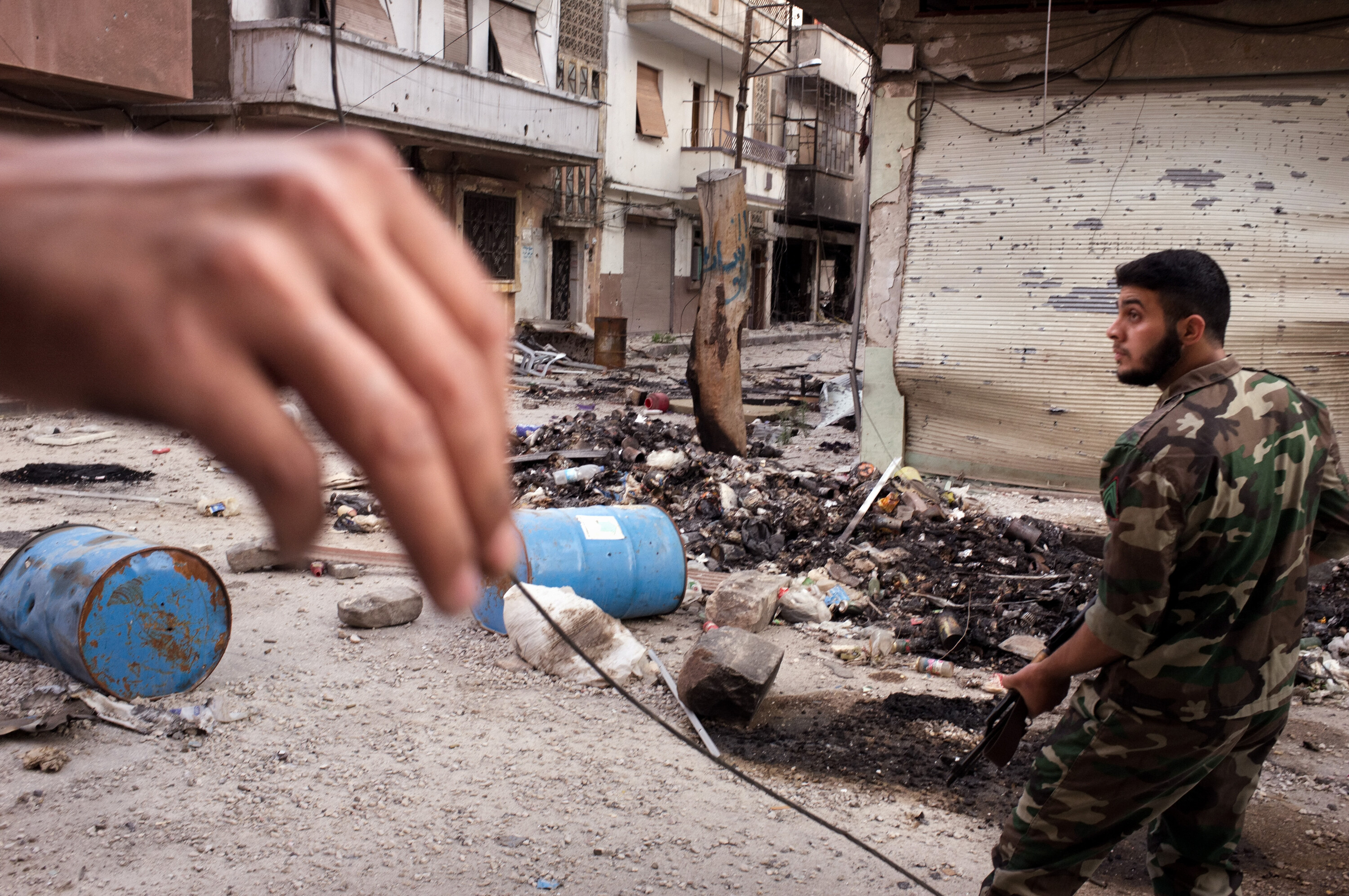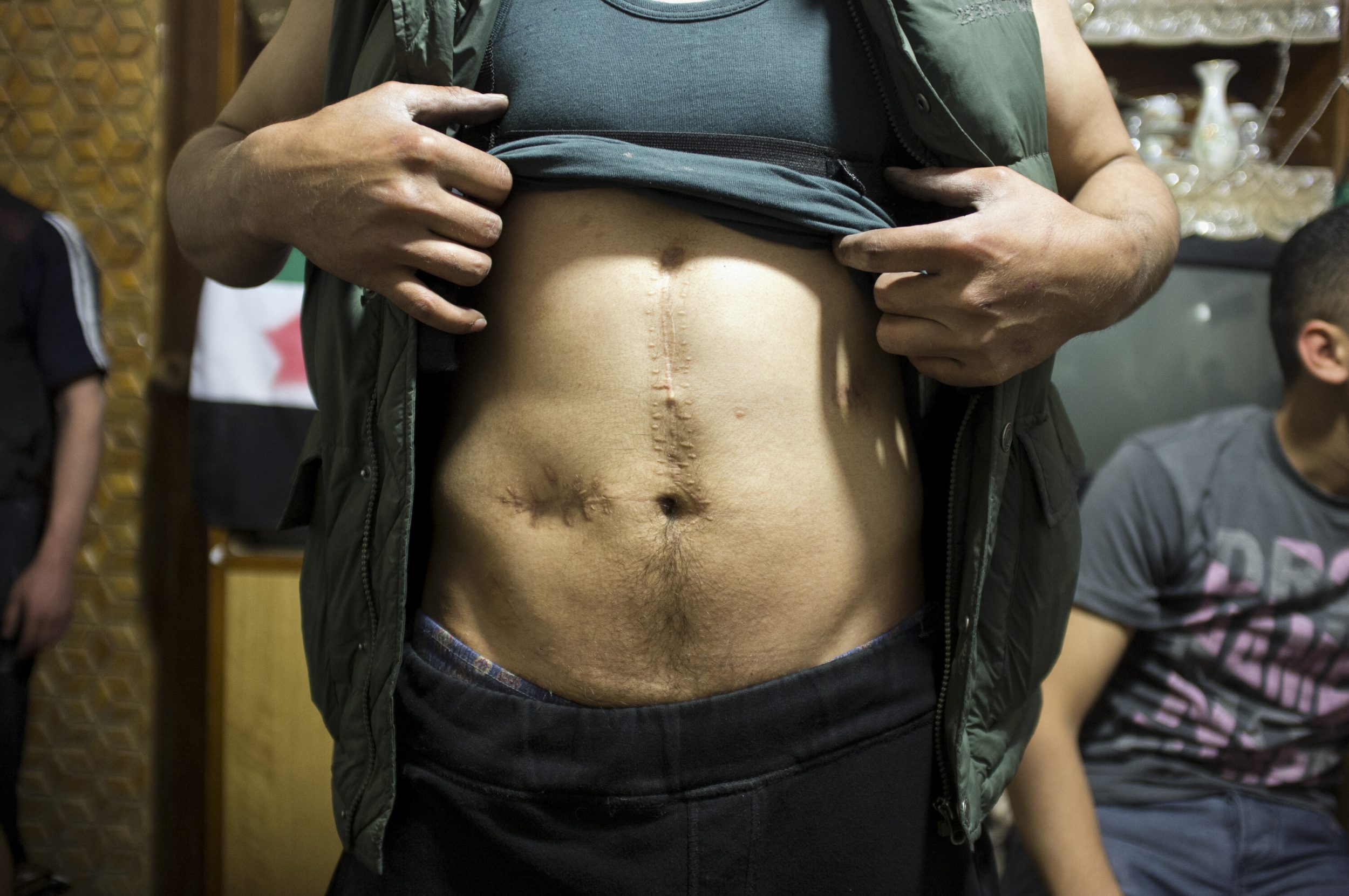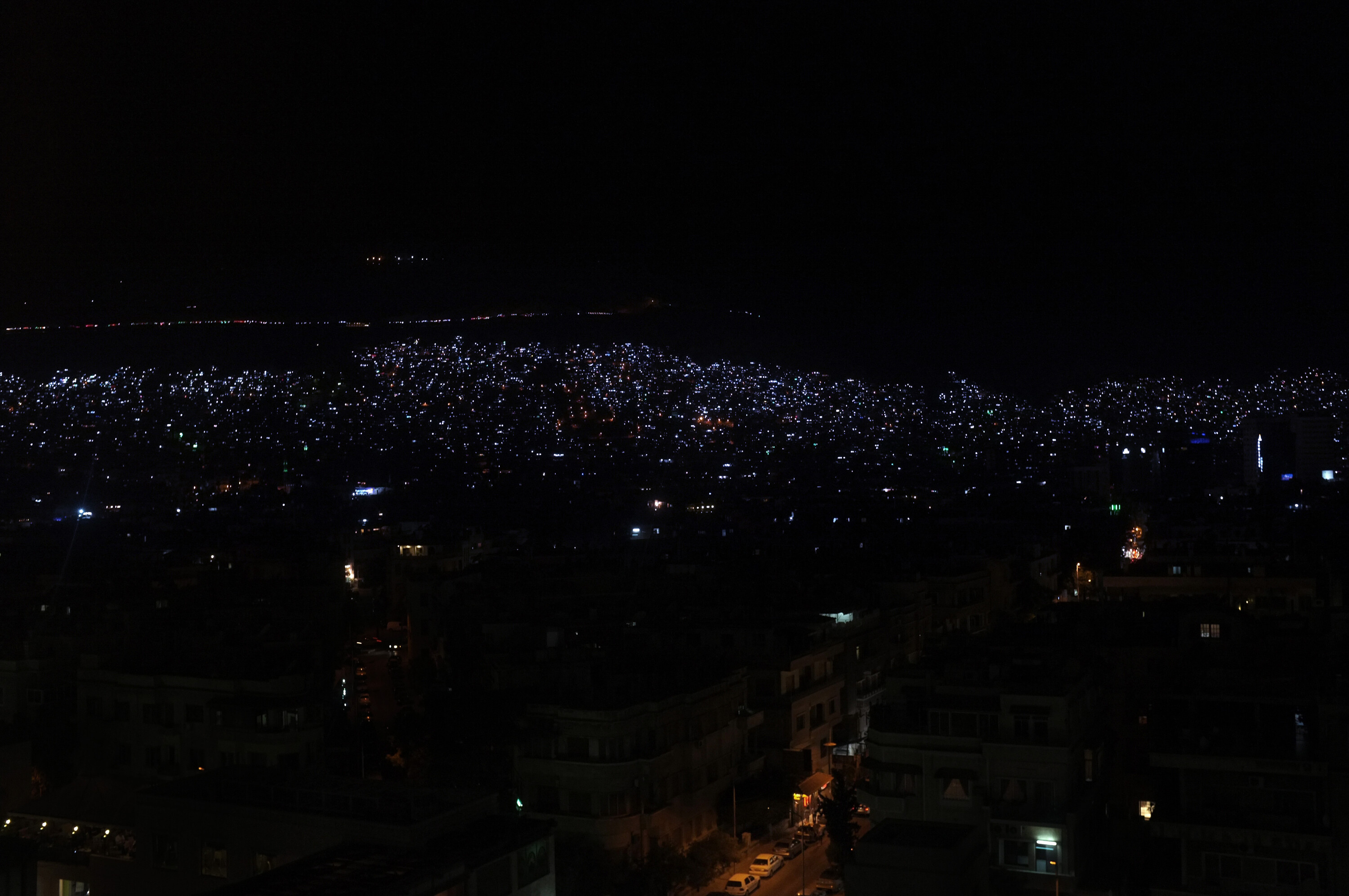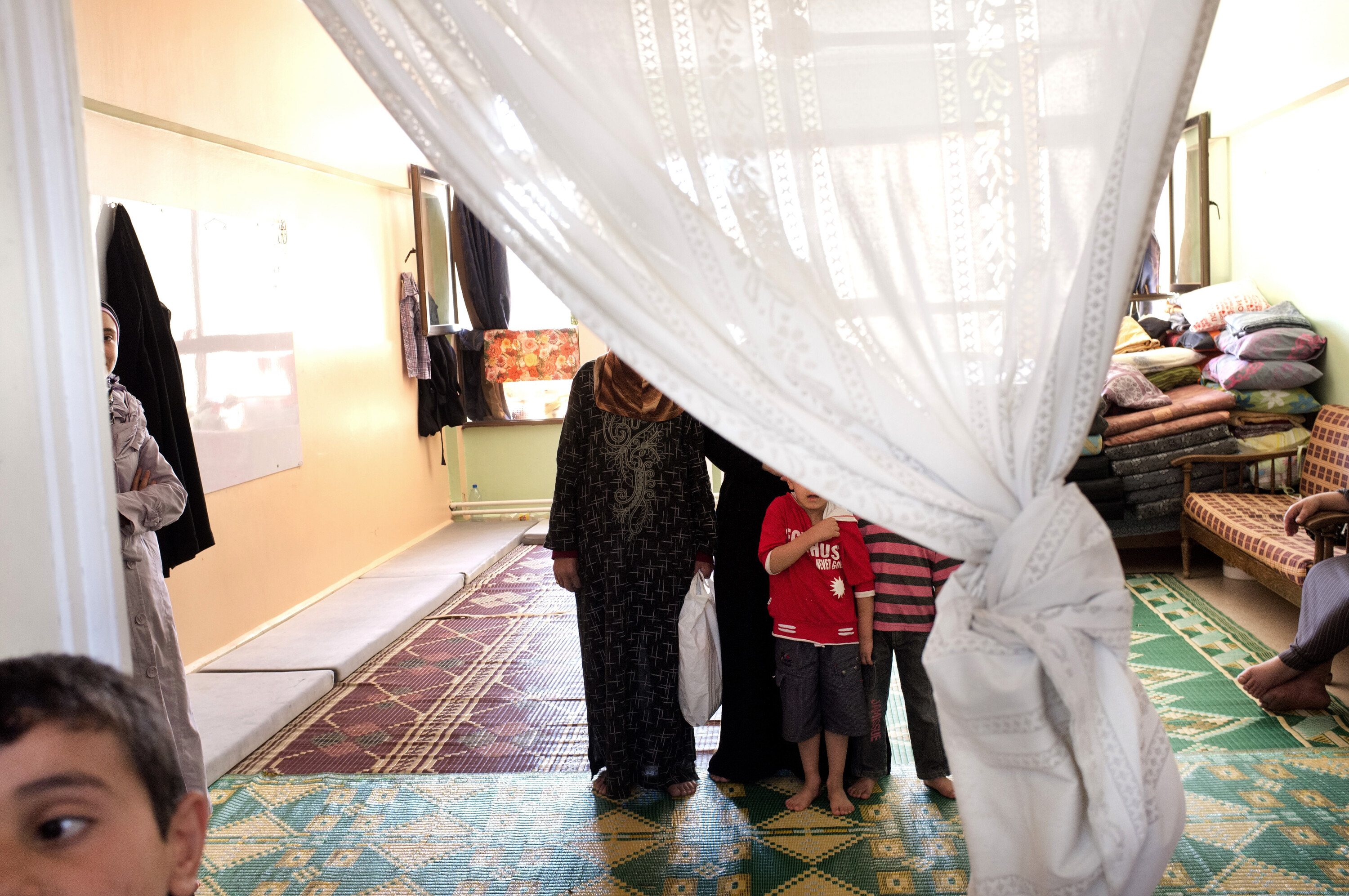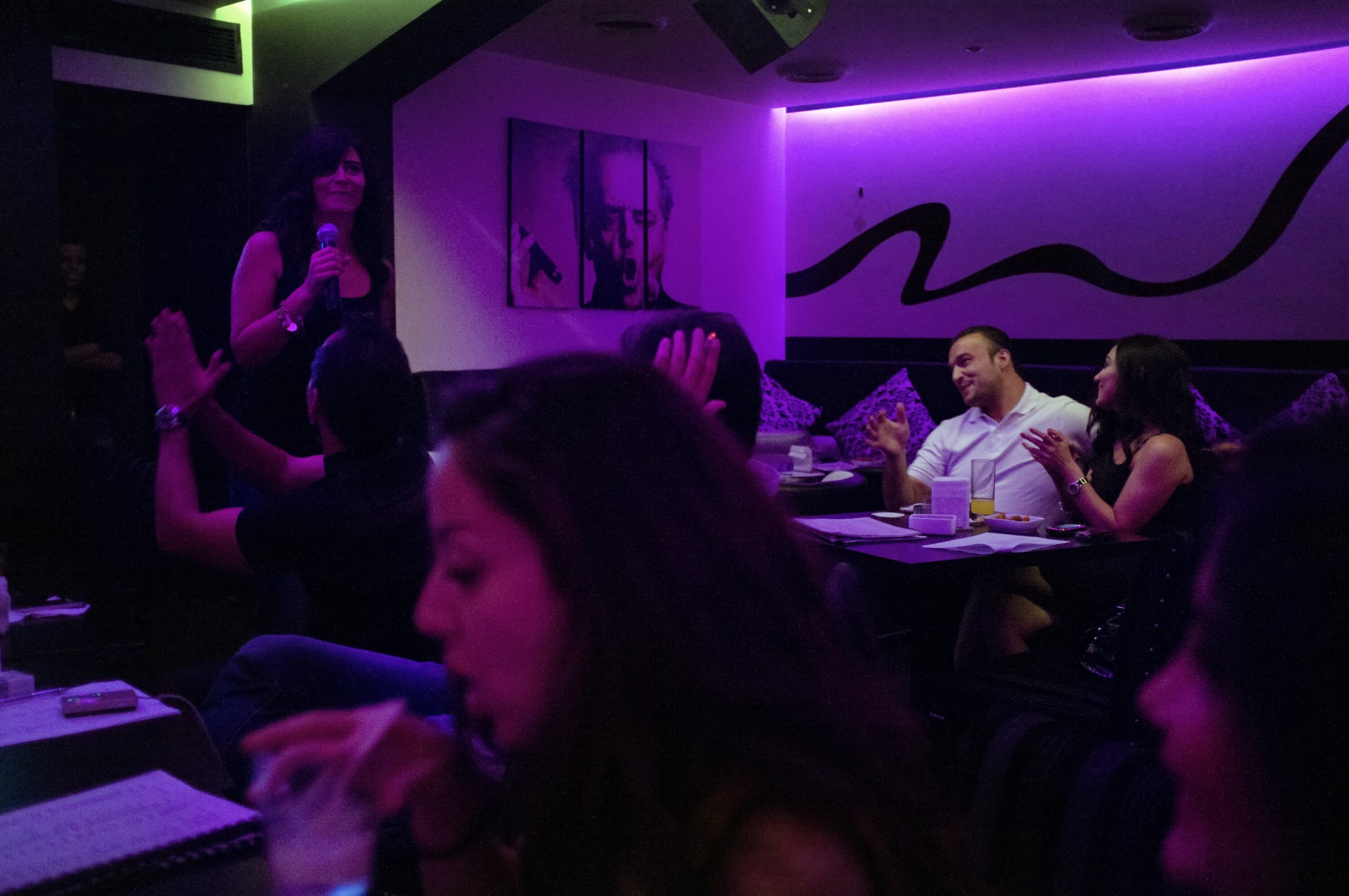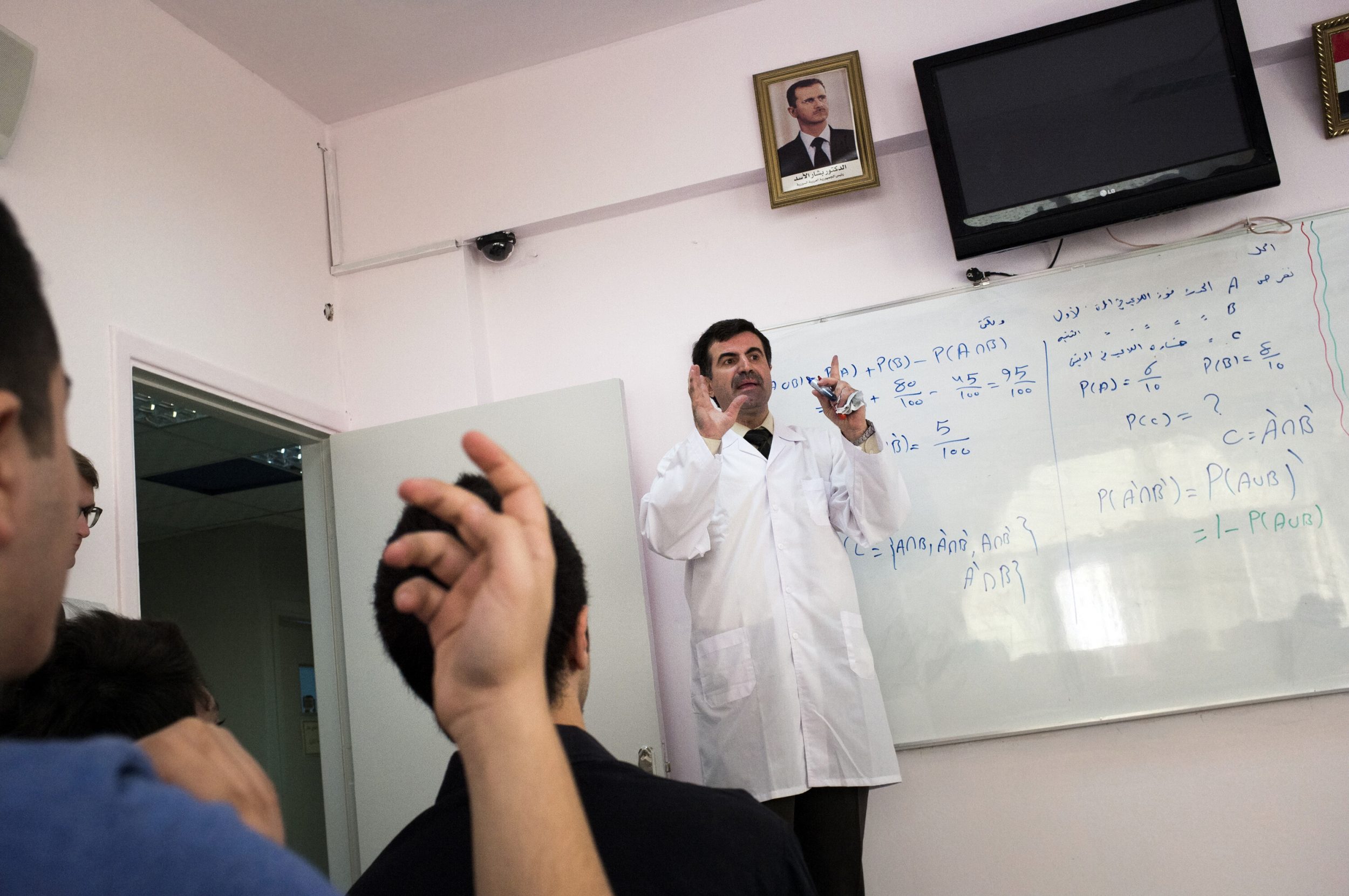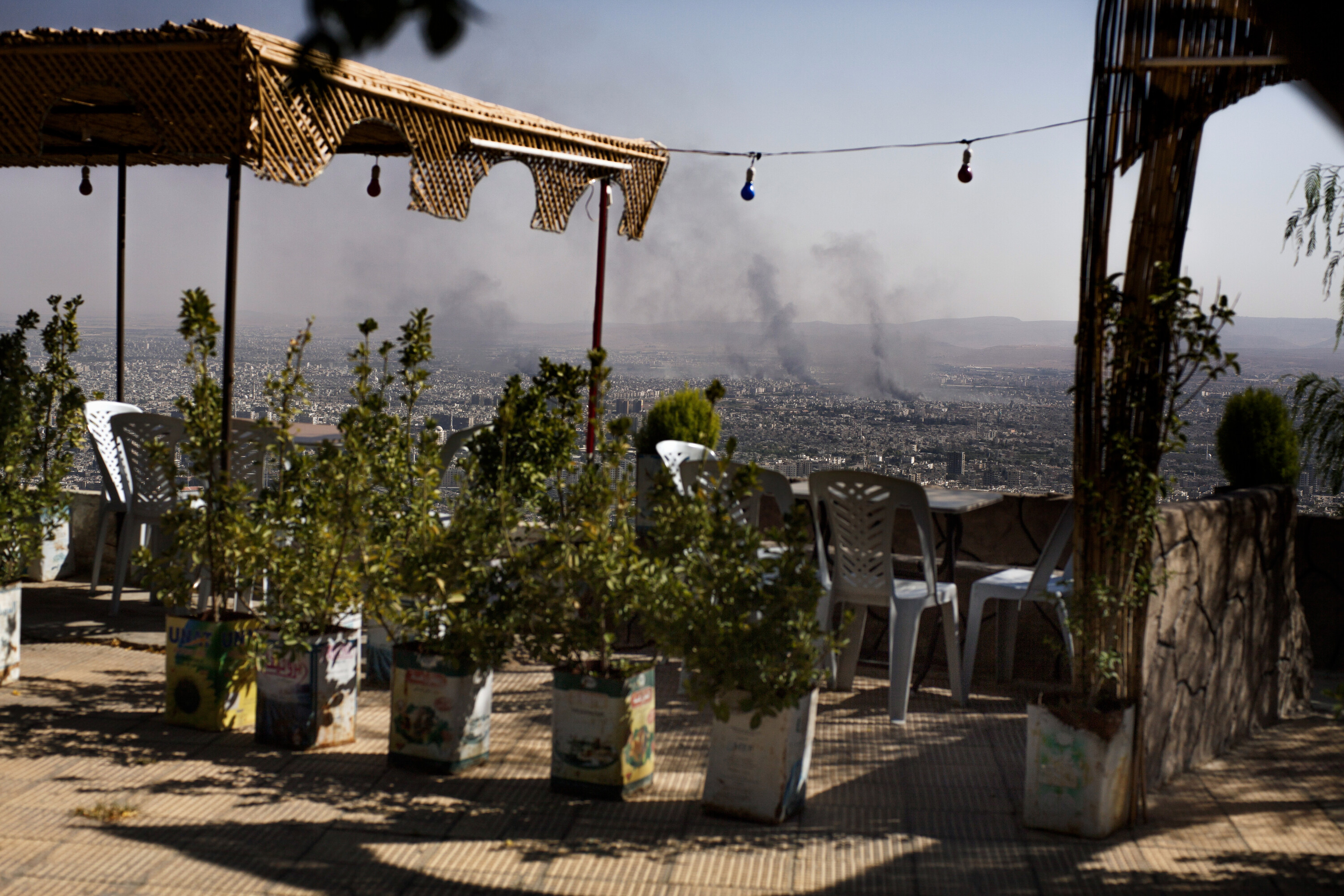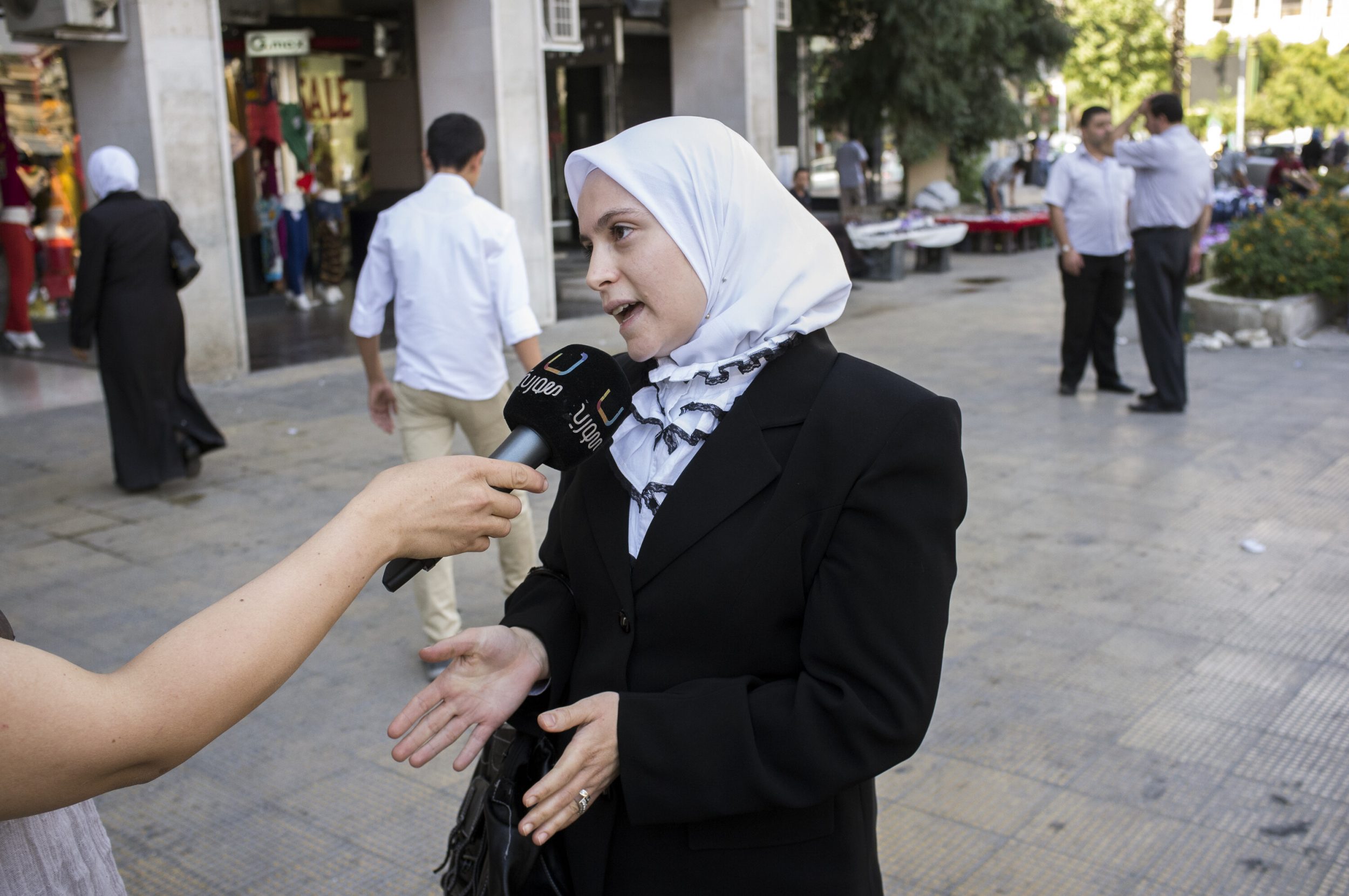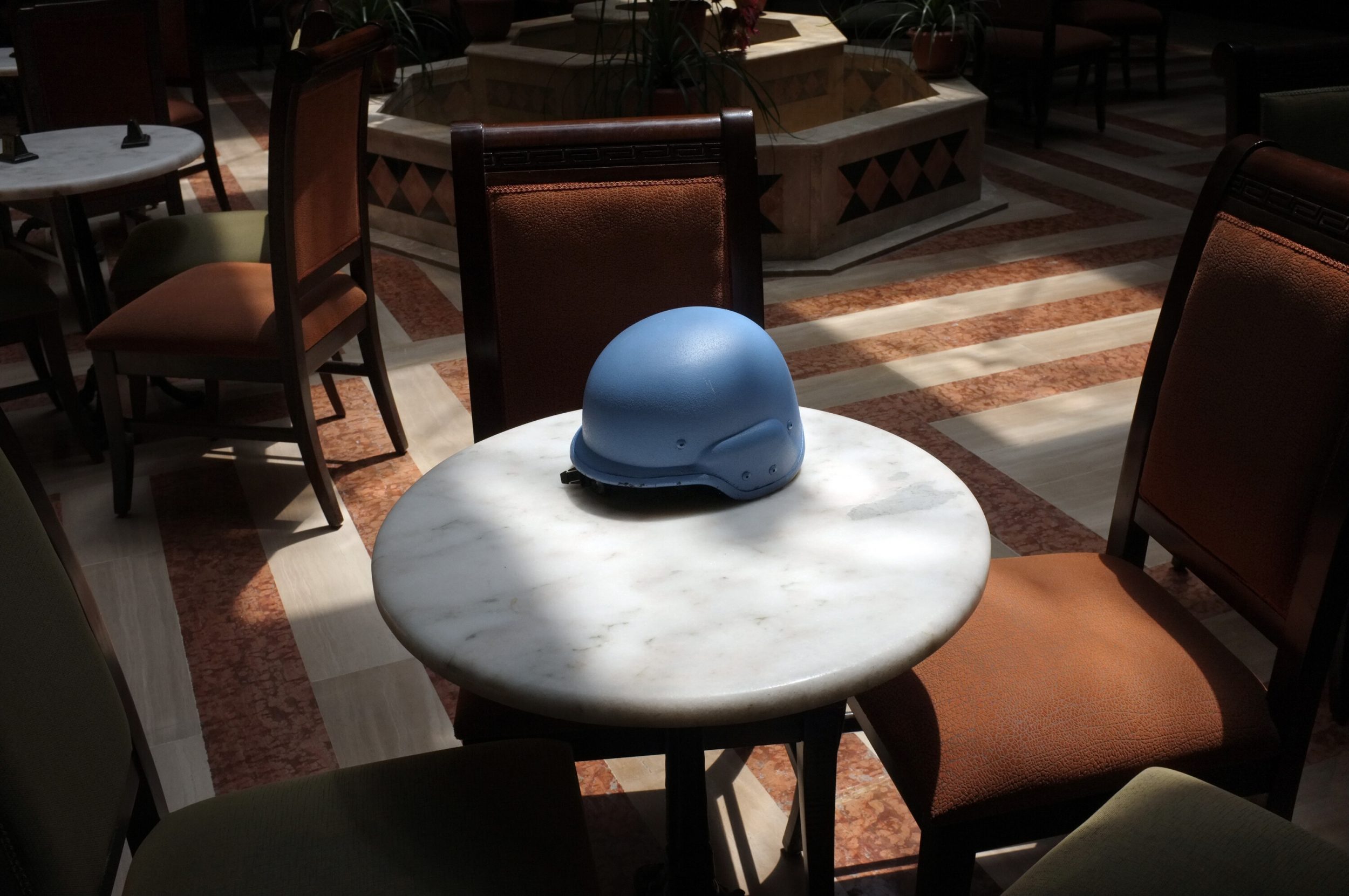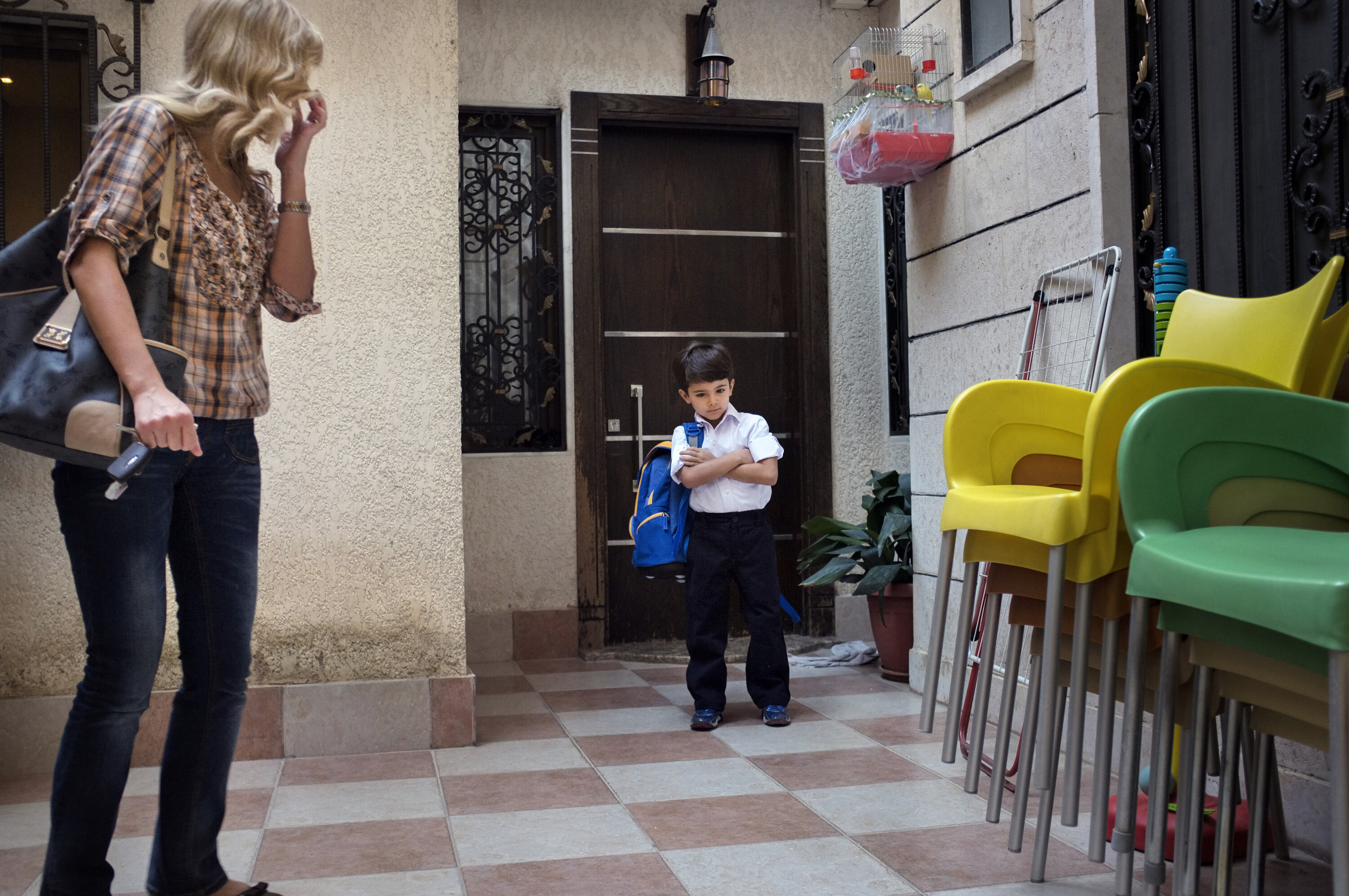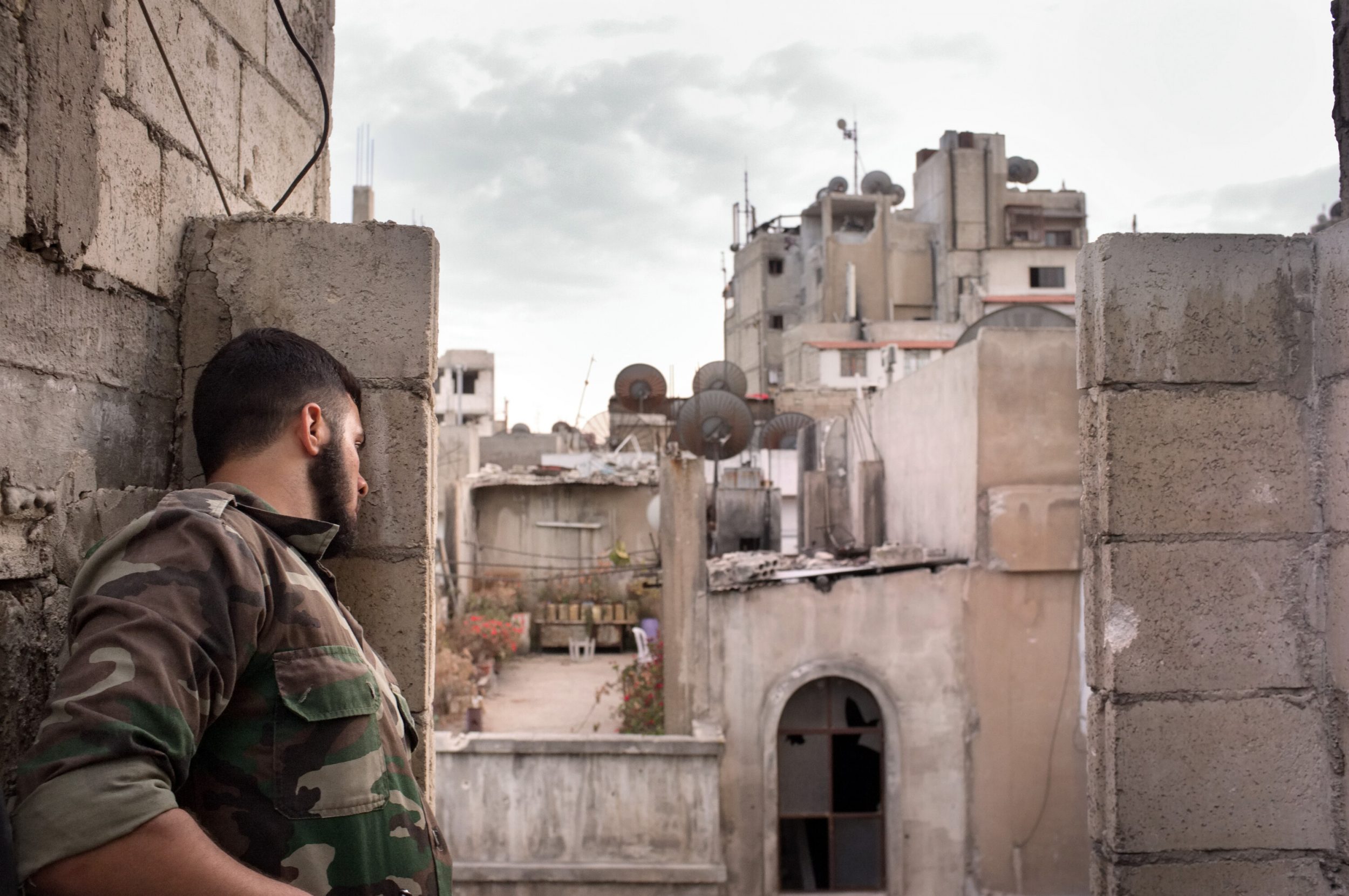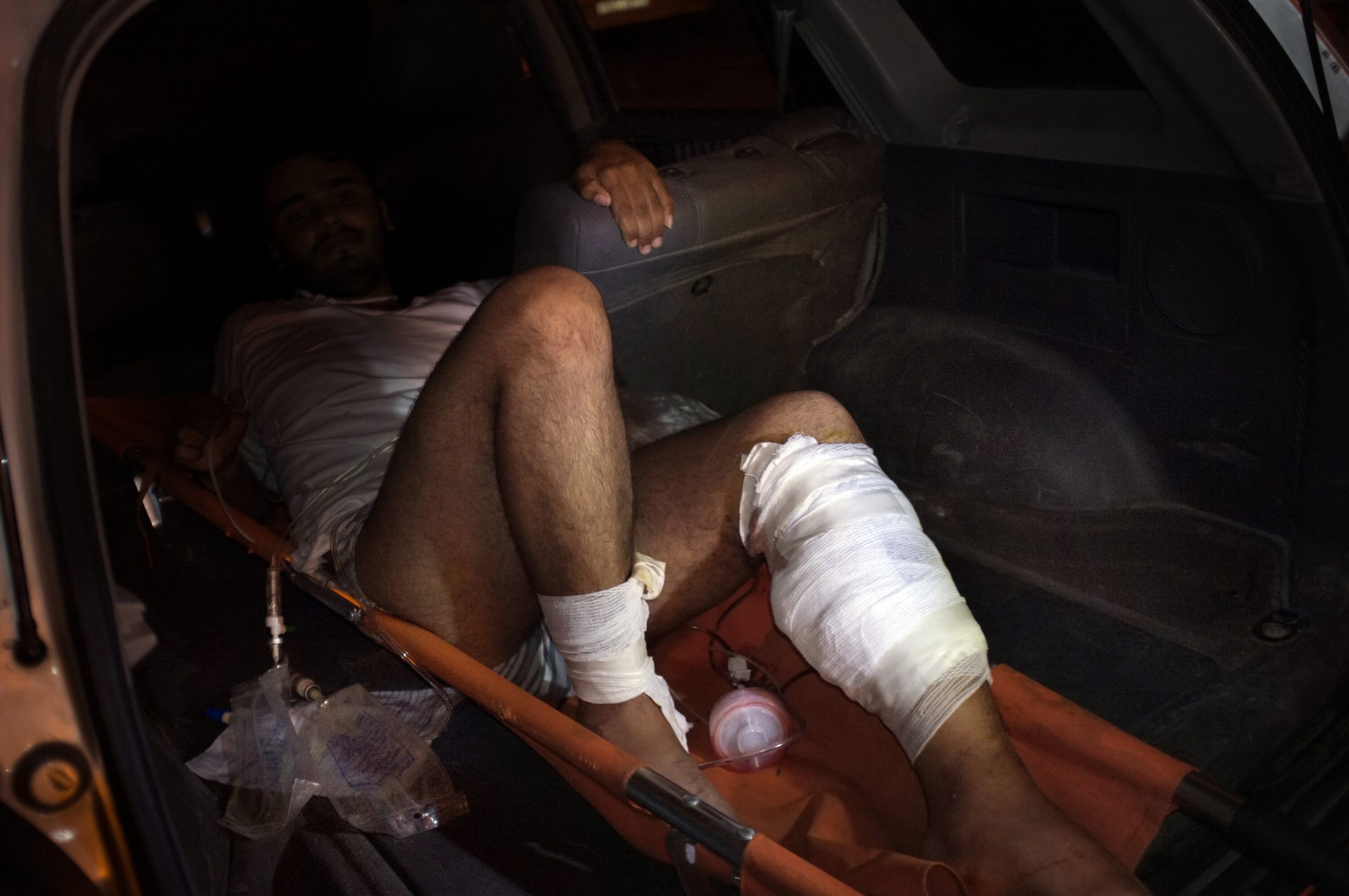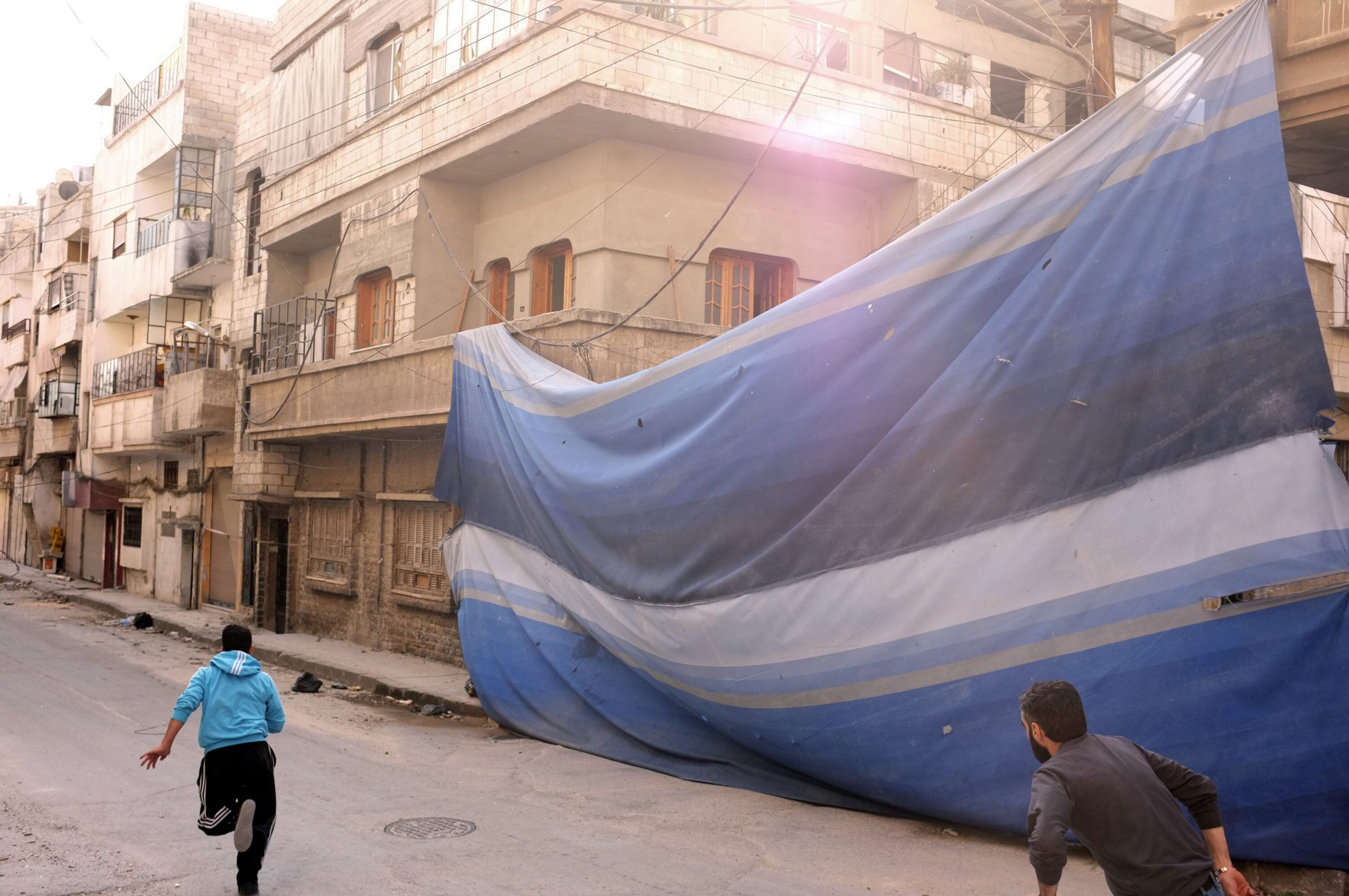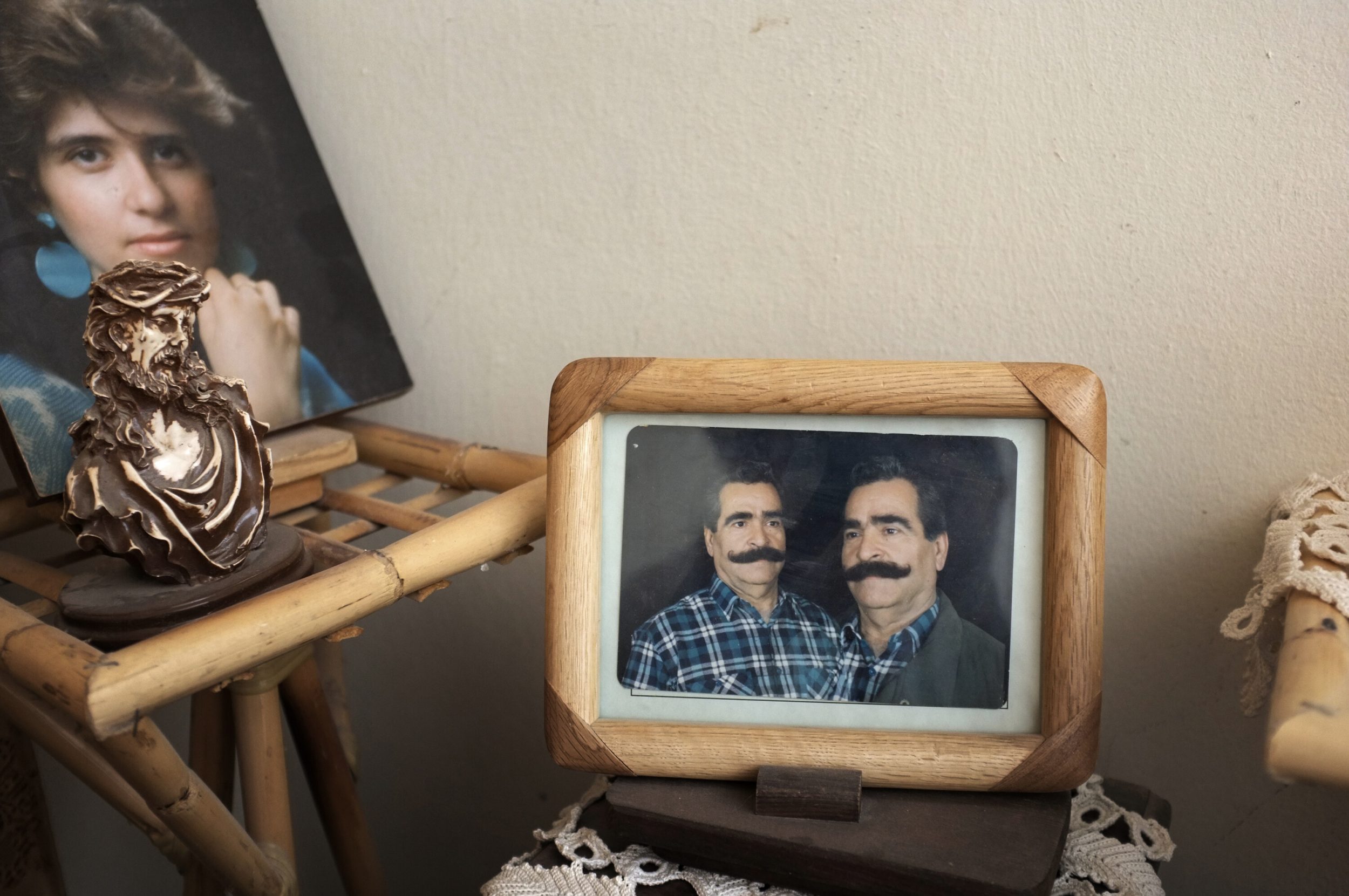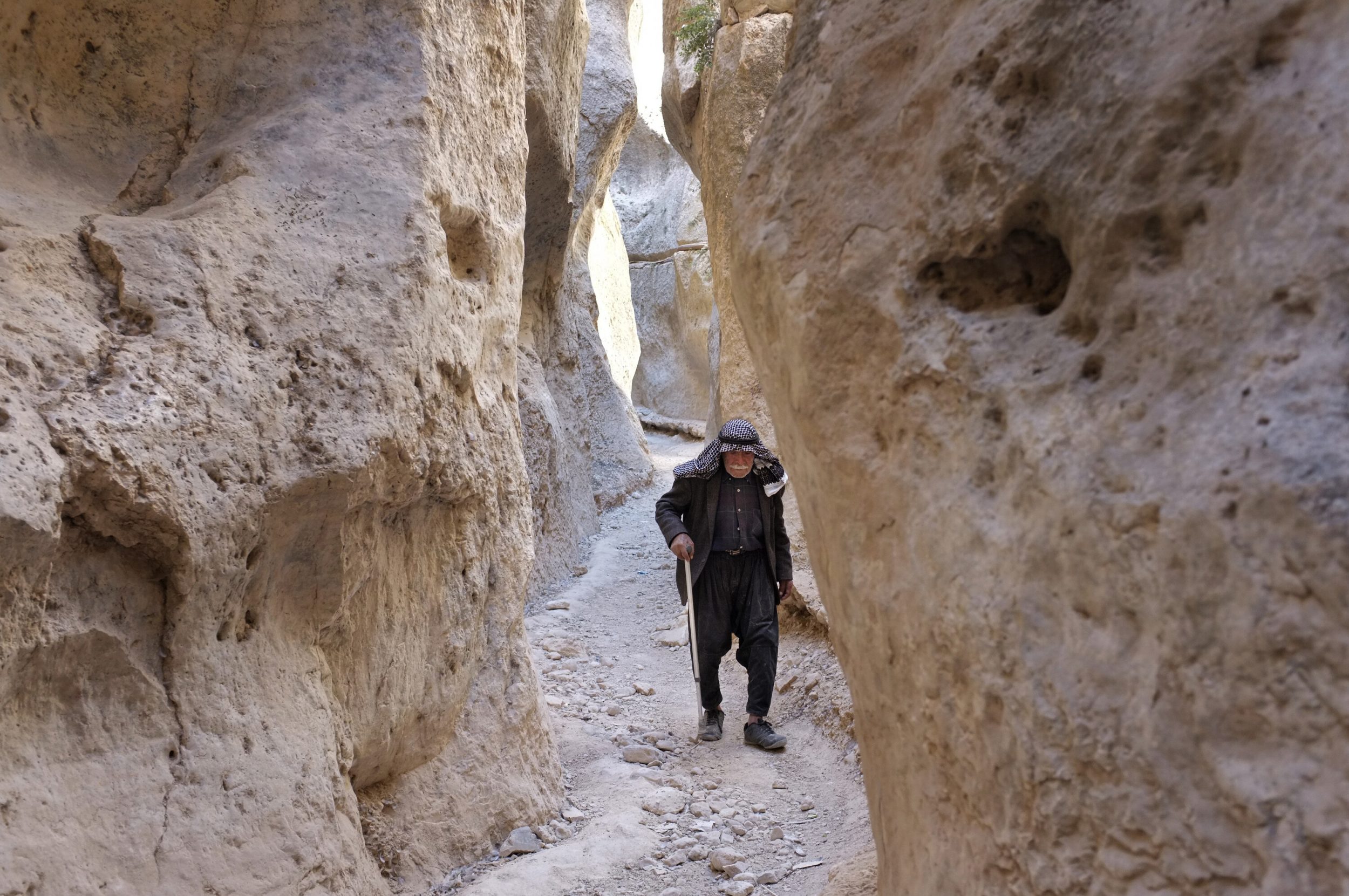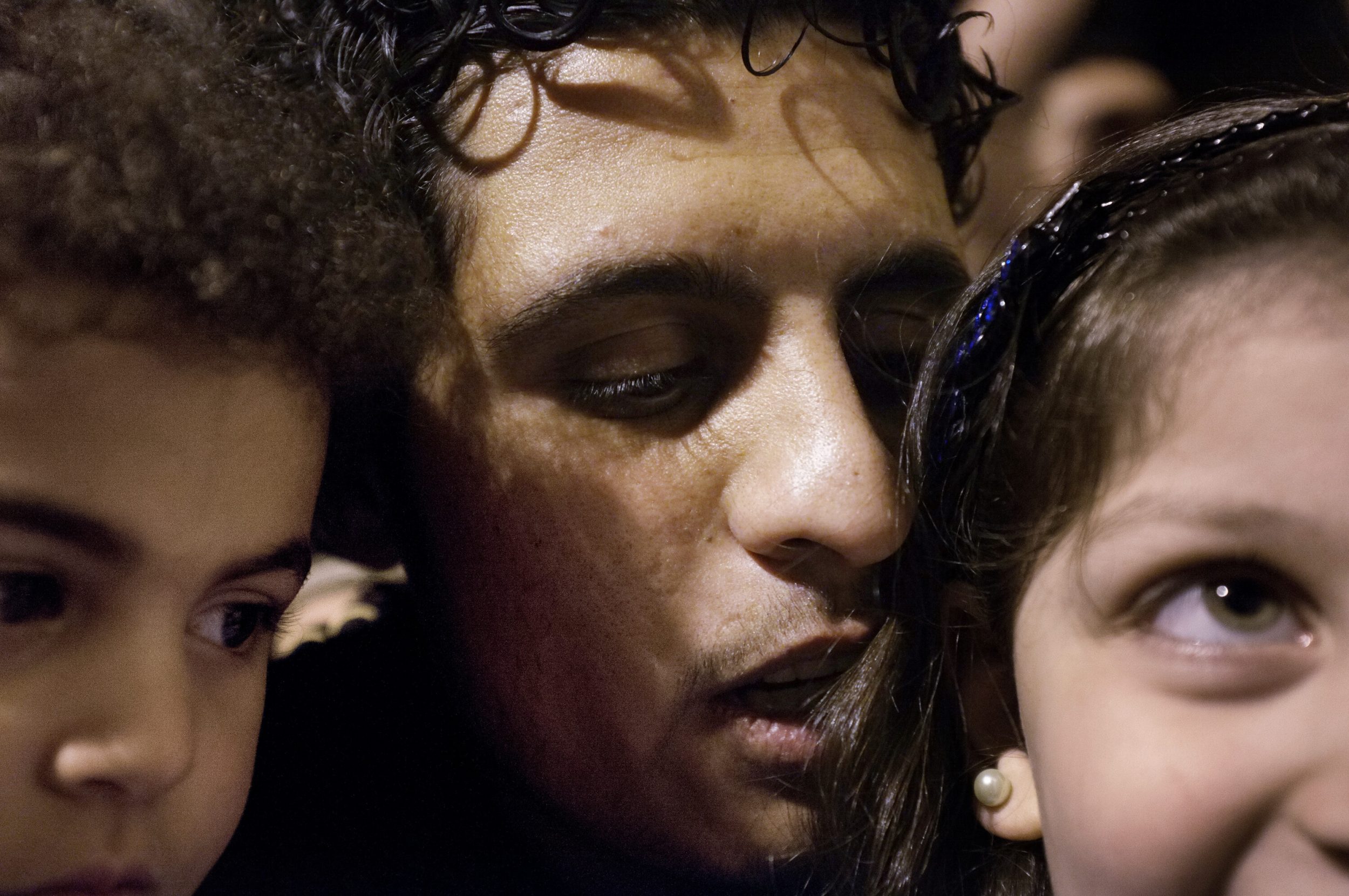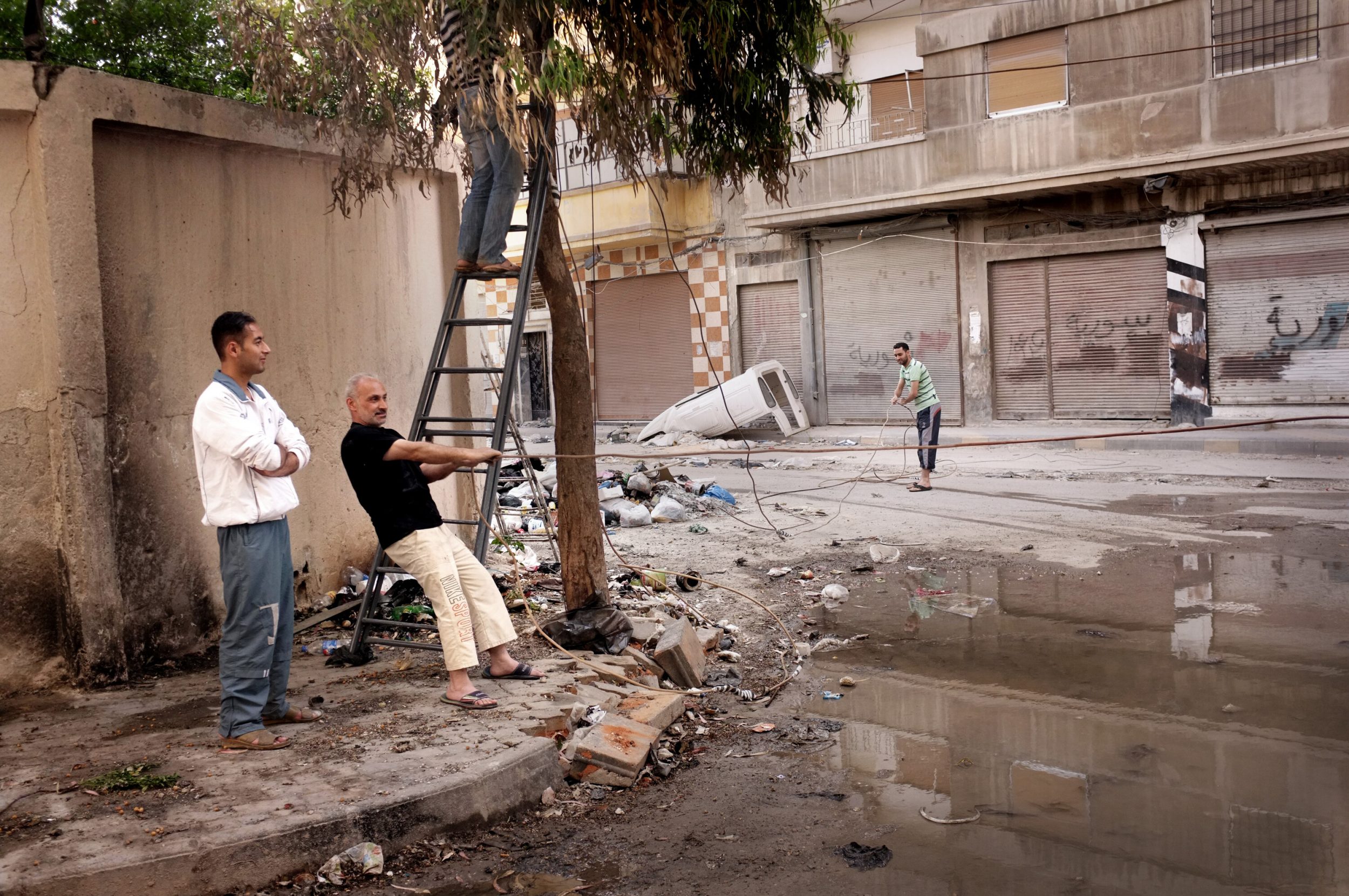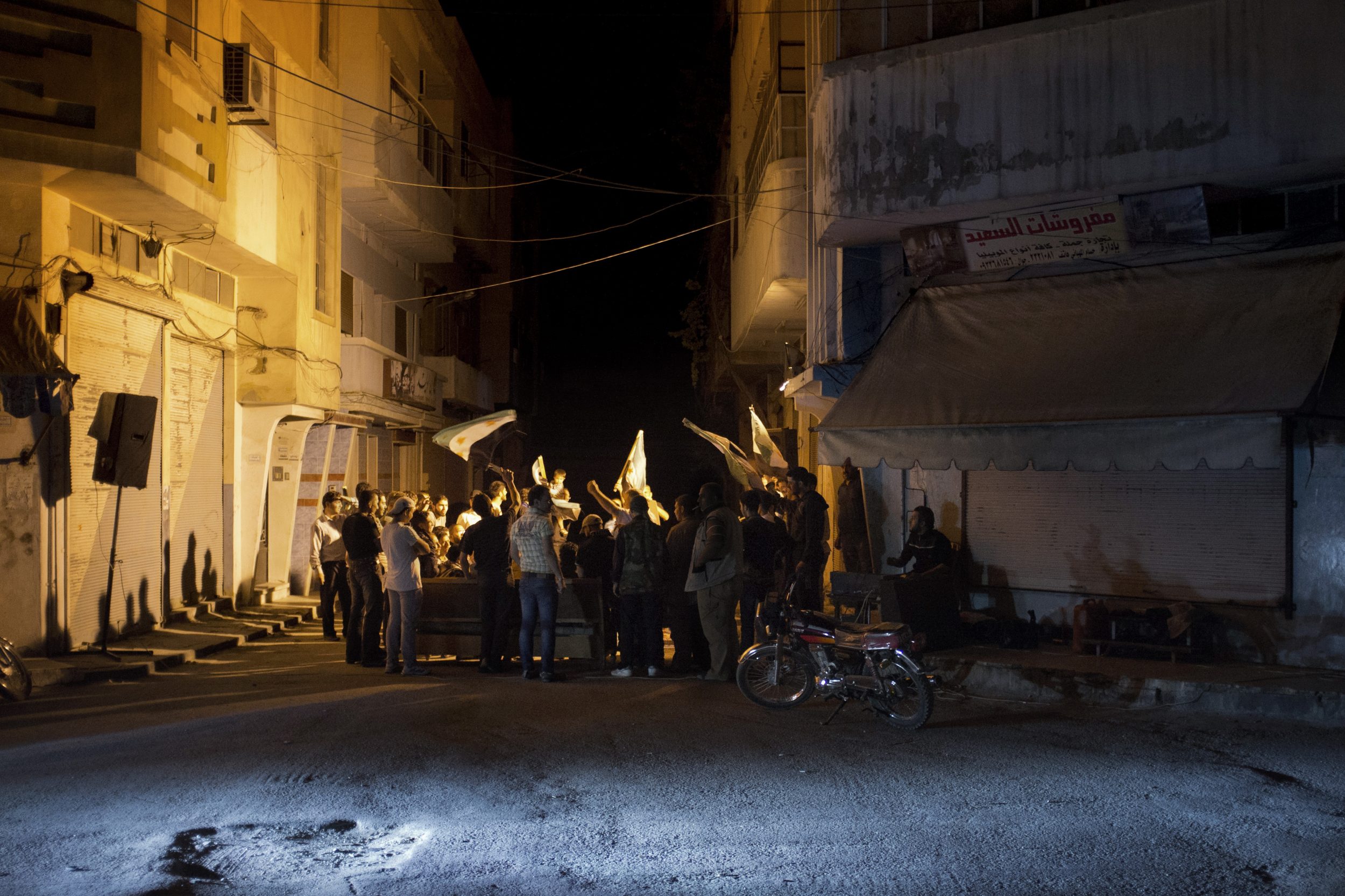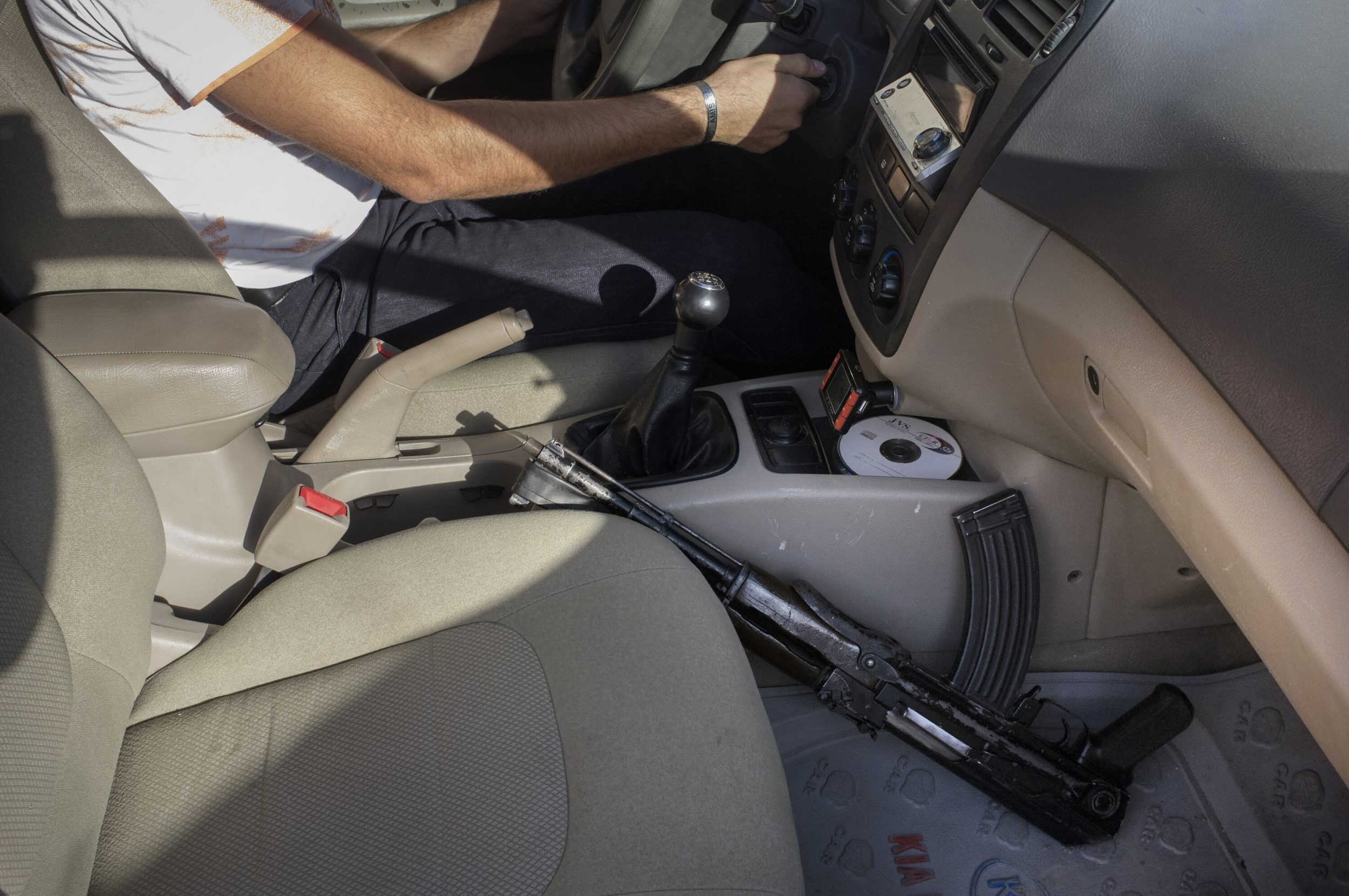The Syrian revolution from both sides
Twice, I have received visas to photograph in Syria. Surprisingly, I was allowed into pro-Assad districts in Damascus. Many photojournalists were denied entry; no reason is given. I didn’t have government minders while working in Damascus and the rural towns of Ma’loula and Douma, but some checkpoints prevented me from entering rebel-held areas (I snuck past a few), overbearing restrictions, and conversations that crashed into ideological walls.
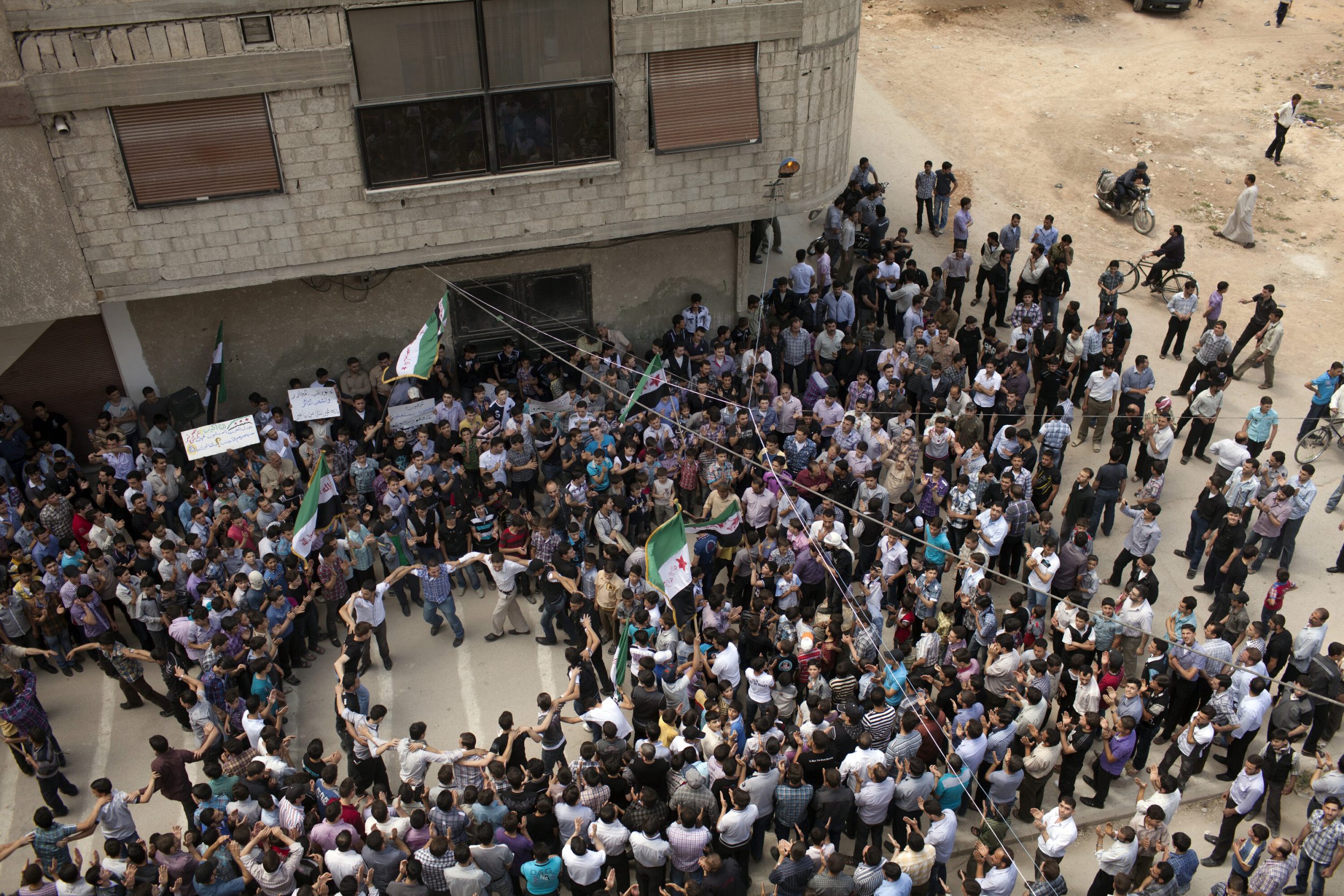
Most pro-Assad Syrians espouse variations of the same narrative: The Free Syrian Army is composed of foreign-backed terrorists bent on destabilizing Syria who are at the service of Saudi Arabia, Israel, and America; Assad has been forced to use measured violence to crush them, and he is the bulwark keeping Syria from fragmenting into bloody sectarianism; many of the atrocities Western journalists are blaming on Assad’s army and shabiha (Assad-hired thugs who dress like civilians and sneak-attack protestors) are actually being committed by the rebels and their criminal milieu.
In my experience, when Assad supporters are asked about reports of the state officials torturing activists or the overwhelming use of indiscriminate force on civilian populations, they say either that these claims are exaggerations, if not fabrications, or that violence is necessary. One Syrian journalist even pointed out that if the US is permitted the use of extrajudicial arrests and torture to thwart “terrorists,” then Assad’s government should also be allowed to do so.
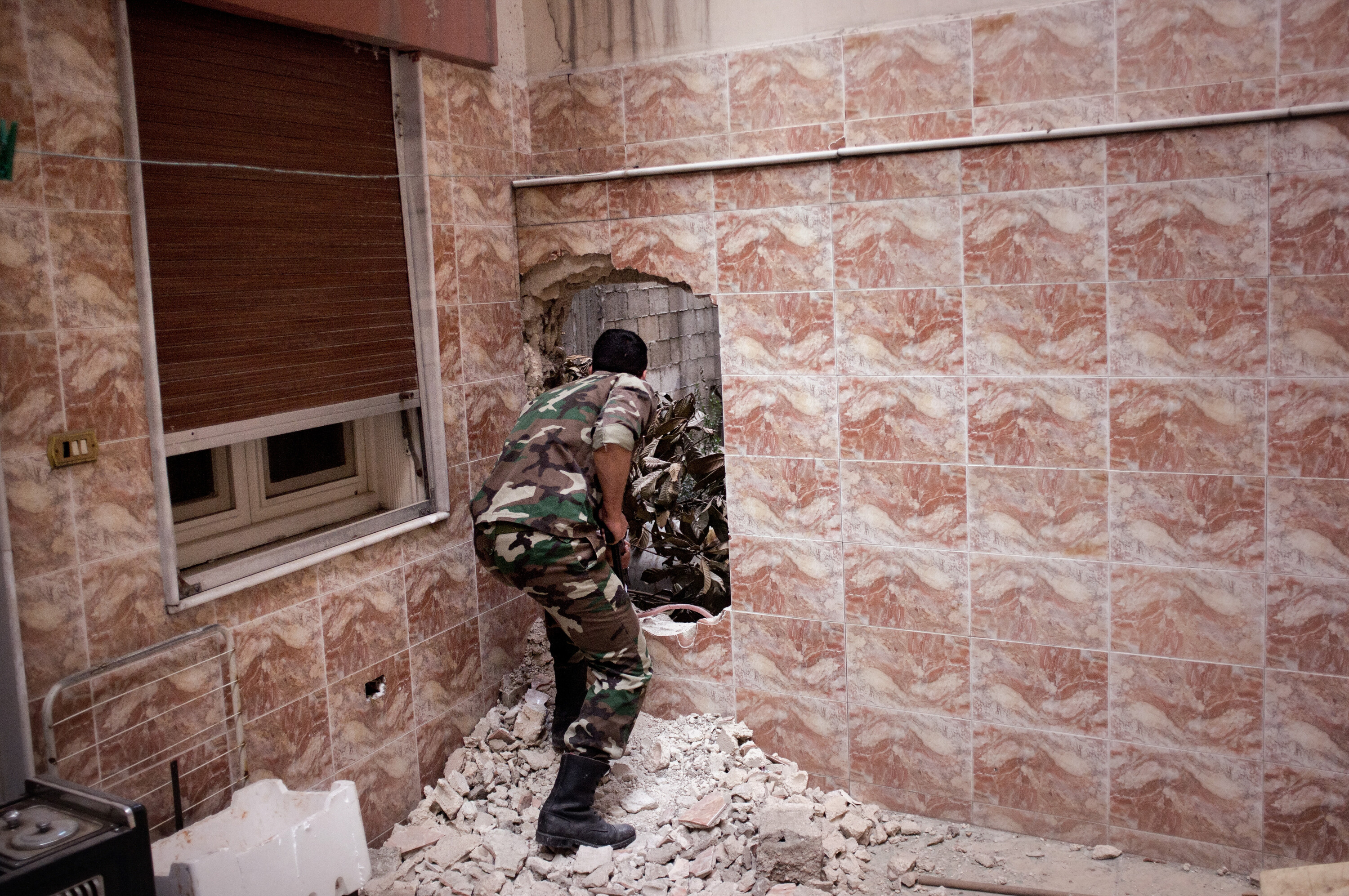
The storylines of rebels and loyalists are constantly competing in the Arab media. Satellite television stations like Al Jazeera and Al Arabiya, networks that made their names with impartial coverage, have had a noticeable pro-rebel tilt. Inside Syria, the Damascus-based array of state-run television channels and Addounia TV (a privately owned station viewed by many as a mouthpiece of Assad) broadcast the government’s line. These Assad-backed channels have been blocked by satellite television services in Egypt and many countries throughout the Gulf.
The only time I ran into a Syrian state-TV reporter in downtown Damascus, she was conducting street interviews on a pressing issue: “Which fruits and vegetables do you freeze so you can eat them out of season?” It made the smoke billowing on the horizon all the more surreal.
Earlier that day, I had been sitting at a coffee shop on the slopes of Mount Qasioun, taking in the sweeping view of Damascus. I saw smoke then too, rising from the southern suburb of Qadam. A man walked up to me and identified himself as state security. He told me that I was not allowed to photograph anything, explaining that the smoke on the horizon was black, which, according to him, meant that the rebels were burning tires to make the government look bad. He had no explanation, however, for the thud of artillery fire that had been audible since dawn.
The roar of such fire fades into the background of Damascus but doesn’t ever dissipate. On the first day of primary school in the upper-class neighborhood of Mezzeh, the sound seeped into a closed-window classroom where I was photographing young students. One mother tried to comfort her son by claiming it was thunder. Eventually, he didn’t believe her anymore and asked, “When will it rain?” A couple of young hairdressers hanging out in Mezzeh joked with me that it was “the sound of romance.”
Rama Hamdi tries to coax her son, Hadi Shaban, to leave for his first day of school in Damascus. Even in peaceful parts of the city, the daily routine has been disrupted—students are going to schools closer to home since the roads are unsafe after dark. Even in the supposedly secure neighborhood of Mezzeh, the low thud of artillery shells is a constant.
The only place in the city where artillery fire couldn’t be heard was during karaoke night at a place called the Mood Lounge. There I watched a small crowd of the rich and well-connected crack jokes and prod one another to sing patriotic songs, French classics, and Amy Winehouse.
Just two days before my visit to the Mood Lounge, a writer, translator, and I were heading down a back road into Zabadani, one of the rebel-held towns along the Lebanese border. We were stopped at a checkpoint outside town and escorted to a house that had been turned into a makeshift command post. Inside, a military officer firmly told us that, for our own safety, we wouldn’t be allowed into the city. He confirmed that the artillery constantly sounding in the distance was being lobbed at Zabadani.
Paradoxically, while the officer prevented us from entering his jurisdiction, he also demanded that we, in our journalism, “tell the truth.” He told us that Assad would rather watch 100 of his soldiers die than allow a single innocent civilian to be killed. The next day, a Syrian activist tweeted that about 20 people had died at the hands of the Syrian Army in Zabadani.
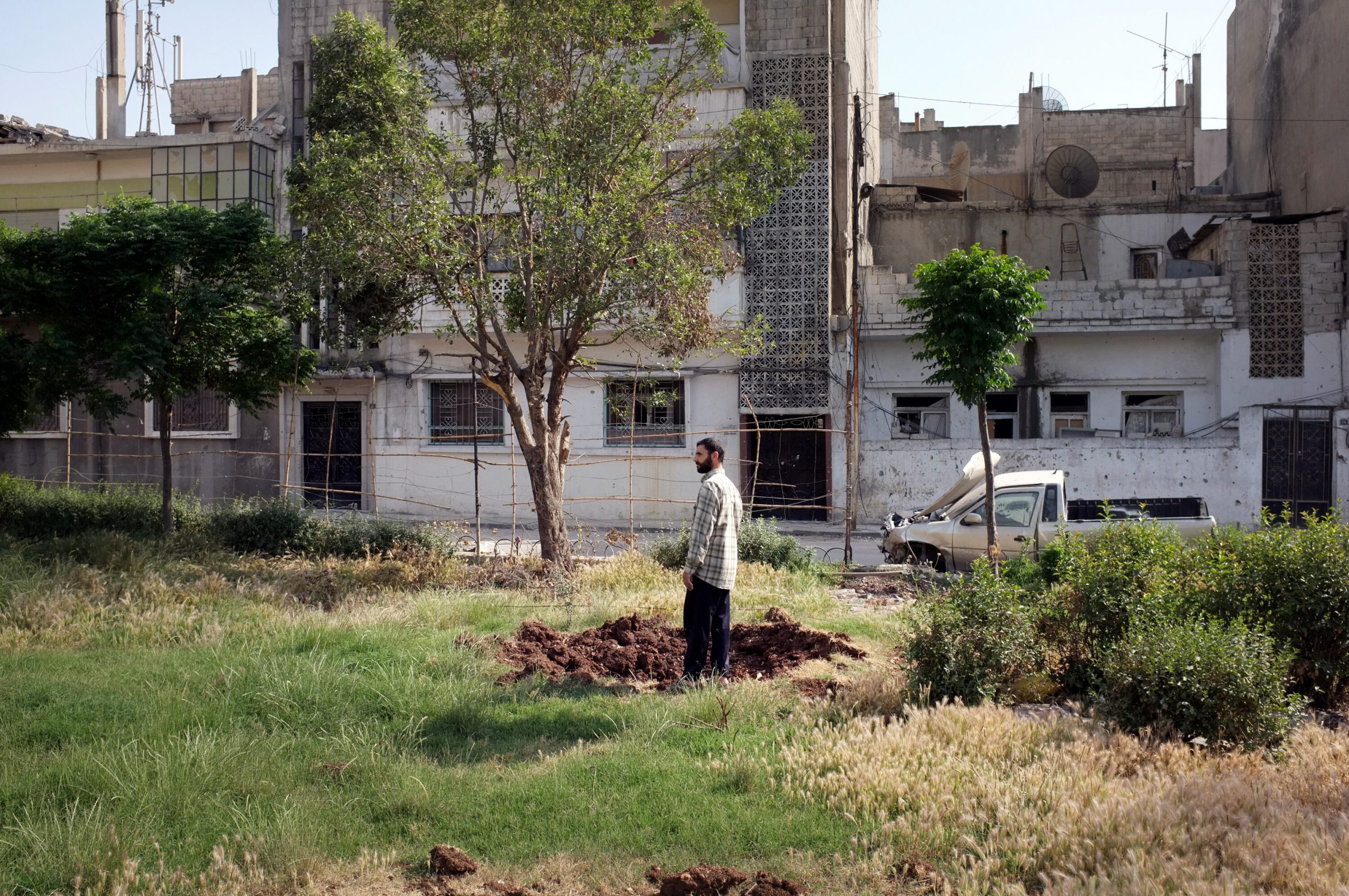
The officer speculated that his nation’s erupting civil war was just the beginning of World War III—after an attack by Israel, he said, Syria would be forced to defend itself by invading and eventually liberating Jerusalem. And with that, we were ordered to turn around and join the line of cars evacuating the area. The other vehicles were mostly filled with families of civilians.
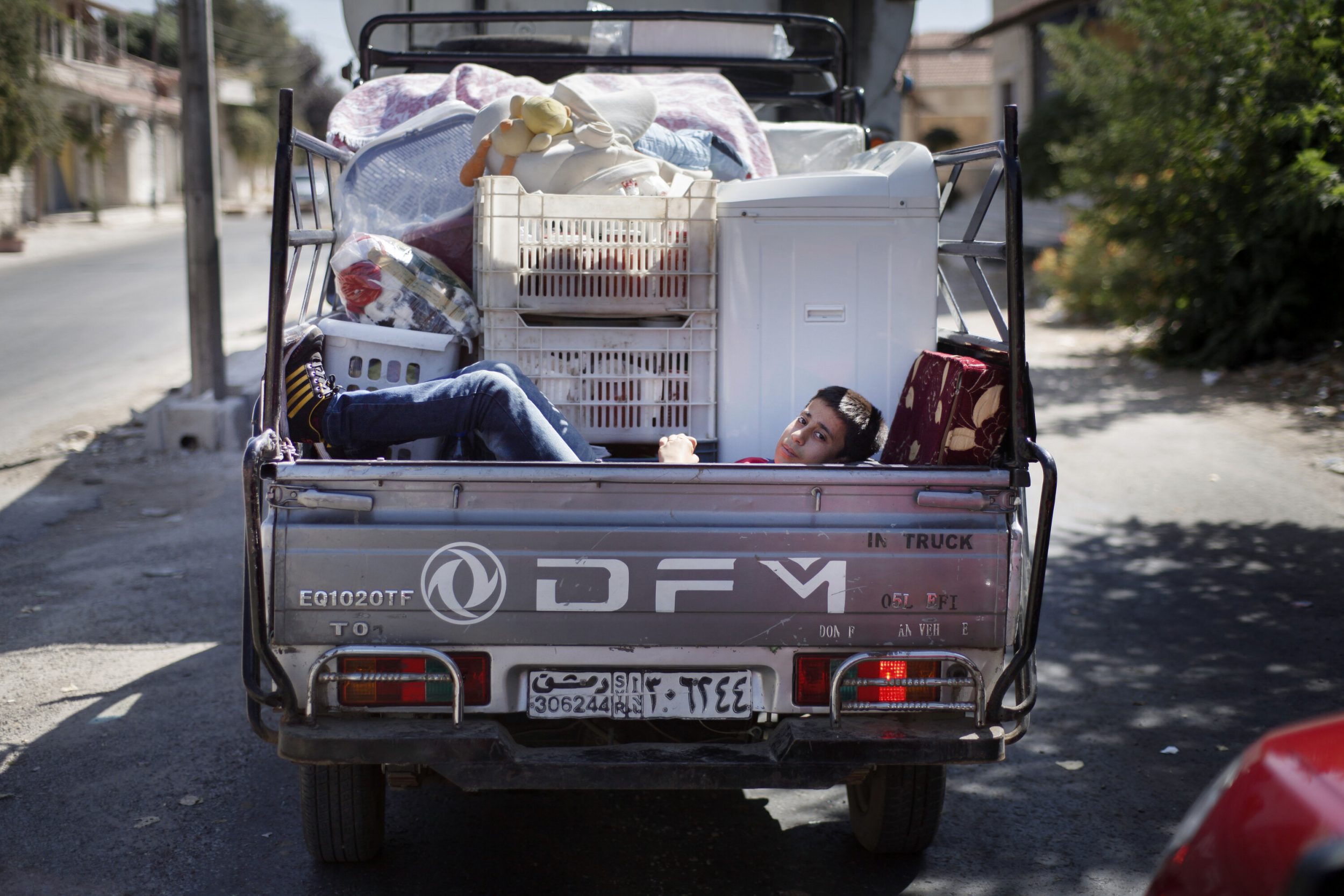
Sheep owned by a Bedouin family are fed on the outskirts of Damascus. Sheep are one of the few populations faring better than normal during the war; fruits and vegetables that can’t be transported to the city are being used to feed local livestock.
In Ma’loula, a small southwestern Christian mountain town, I had a drink in the home of a soldier who fought in the 1973 war with Israel. He said that he was a former member of the Syrian Social Nationalist Party, and that while fighting in the Sinai he and a group of fellow soldiers had wanted to prove themselves to their Egyptian counterparts—their allies in that ill-fated assault on Israel—so they had roasted a dead Israeli soldier on a spit and pretended to eat his flesh. They were actually eating from a lamb that had been cooked nearby. His explanation for their actions? “It was a time of war.”
The soldier then pointed to my jawline, to a patch of white in my brown beard, and said that terror alone can cause such a spot to appear almost instantly. He was probably right; I noticed the discoloration after my first trip into the fighting in Homs, a city that has been devastated in the war. The cure, he told me, was to rub it raw with steel wool until it bleeds, for three days straight. Then let it scar over.
